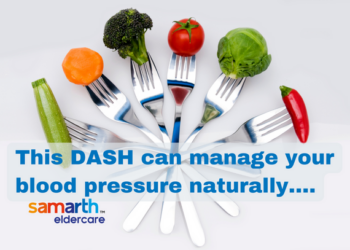There are a lot of myths around the supplements that can be easily purchased over the counter without a prescription. Many people believe that it is good to consume multivitamins, Calcium, Zinc, Vitamin D, and more, for better health and immunity. While in India, it is still not that bad, in the US it was reported that 77% of Americans consumed some dietary supplement or the other!
Perhaps, it is not hard to believe then that the US supplement market is set to touch $56.7 billion by 2024. The pandemic might just have provided it an added boost, as people may take to it to maintain or improve immunity. The senior citizens especially feel vulnerable and may want to explore this, if they are not already.
Some of the questions that people have in mind about supplements are:

Join Now >
- Are these supplements really needed?
- Do they really help?
- Are there any side effects?
The answers to these questions may differ for different people with specific health conditions. So, all the information given below is generic based on published medical information and articles. If your doctor has prescribed supplements, then it should be based on your health and medical history and hence, should be followed strictly. However, if you are otherwise healthy, perhaps, it’s best to read through and pause for a moment before popping a Vitamin pill or consuming some random herbal powder.
The availability
The most common supplements that people consume are:
- Vitamins
- Minerals
- Herbs
- Amino acids
- Enzymes
- Fatty Acids
- Probiotics
These come in various forms, wherein the most common form happens to be pills or capsules. Then there are powders, concentrates, liquid or syrup form, chewable, edible bars, and more. When people tend to purchase over the counter, there are chances that they believe in the organic/herbal/natural ingredient ones. It is a myth that anything marked as these on the labels is good for health, and also free from side effects.
The issue is on the actual contents, even if they are plant-based and how they react with some of the regular medicines that you consume. Also, some of these things may just not agree with your body constitution. Hence, it is always advisable to check out the supplements with your doctor before taking them. Rather, any supplement should be taken only if a doctor prescribes it. If you tend to go towards the Ayurvedic, there are certified doctors in this form of medicine also. So, it is also good to stick to one form of medicine, as sometimes the mix of Ayurveda and Allopathy or Homeopathy may also cause issues.
Scientific Findings
Scientific studies on the role of supplements do not really have much concrete information on their efficacy yet. The studies on the consumption of most popular supplements like Vitamin D, Calcium, Multivitamins, and Vitamin C did not consistently show that they are helpful for the prevention of strokes or cardiovascular diseases, etc. There is a very common myth that Vitamin C prevents cold; the only scientific evidence towards this is that its consumption may help reduce the symptoms and their severity. But, it cannot help prevent cold. The same is the case with the myth that Vitamin D prevents cancer; the evidence does not strongly point towards this.
Most scientists, dieticians, and doctors would say that supplements are never a replacement for natural dietary options. The jury is still out on the use of the various probiotics in the market. While some of it may be useful in certain health conditions, and the doctors are the best judge of it, it is certainly not something to be consumed off the shelf.
We have read often enough that antioxidants are good for our health and help prevent a lot of diseases like cancer. However, when taken as supplements, scientific evidence suggests that it could reduce your lifespan instead!
The Negatives
So, it is obvious from the above information that supplements are not necessarily something that is safe and will help improve your health, immunity, or lifespan. Also, supplements are usually not regulated as medication in most countries. Add to this, they are allowed to advertise and people may easily fall for their various claims. People in high-risk groups consuming supplements without proper medical prescription is a major cause of concern. Here are some of the risks that you need to be aware of.
- Overdoses of Calcium and Vitamin may result in Kidney stones
- High doses of Vitamin E may lead to bleeding in the brain, resulting in a stroke.
- Vitamin K supplements may interfere with some medicines like blood thinners.
- High Beta Carotene doses may result in lung cancer in smokers.
- Long-term consumption of high doses of Vitamin B6 may lead to nerve damage.
The Need
Some people do need to take supplements and it is a must for their health. This would be strictly based on a doctor’s prescription. There is proof that folic acid alone, or with B6 and B12 helps in reducing stroke. People with osteoporosis do require Calcium and Vitamin D supplements. Also, Vitamin B12 deficiency needs to be addressed with supplements, so also diseases like Crohn’s disease or Celiac disease. Even lactose-intolerant people would need supplements to make up for Calcium and Vitamin D. A formula of Vitamin E, Vitamin C, carotenoids, Copper, and Zinc, can reduce the progression of age-related macular degeneration.











